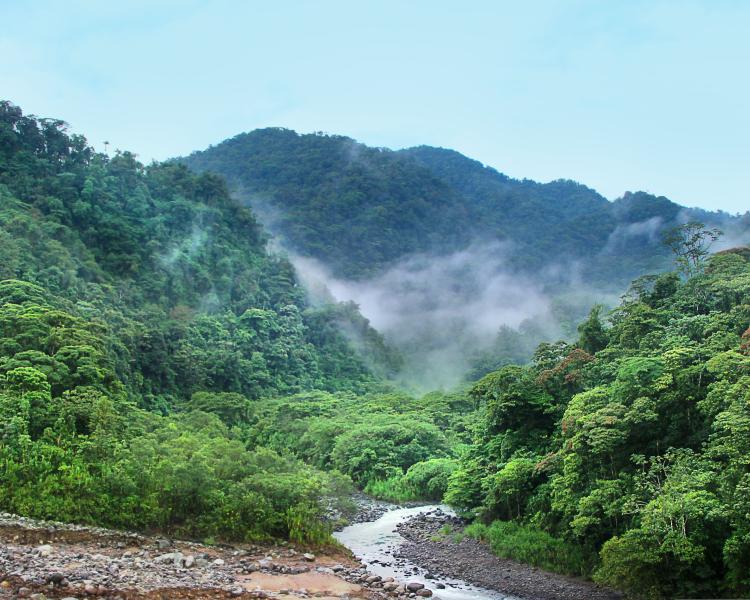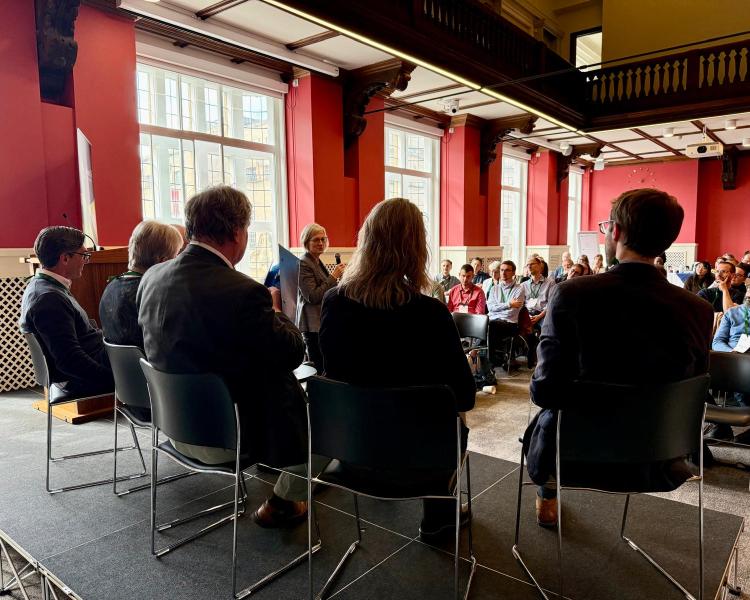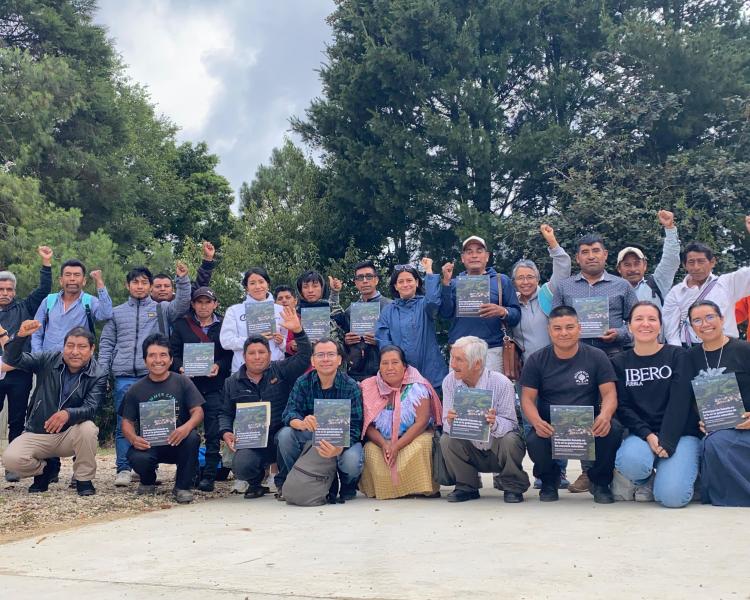News | 24th May 2025
24 May 2025: Ten years of Laudato Si'
Key Details
Topics:
Catholic Social Teaching
Region:
Global
Published on 24 May 2015, Pope Francis’s encyclical Laudato Si’ has been a core inspiration for the formation of our Institute. Ten years on, it remains a powerful and relevant document for the Catholic church, across worldwide Christian denominations, for other world religions, and for civil society more generally. In this article, members of the Laudato Si’ Research Institute celebrate the anniversary by reflecting on how it continues to guide and shape our work in higher education.
He was the first Pope ever to bring so much science into his encyclical. He wasn't afraid of that science. He was concerned to actually see the reality of the world around us: the breakdown of the ecological systems, the breakdown of the planet, the breakdown of community.
-
Celia Deane-Drummond
Ten years after its publication, Pope Francis's encyclical Laudato Si' remains foundational and constitutive of the very identity and mission of our Institute. Throughout the decade, its insights have only deepened in relevance as the crises of ecological breakdown and social inequality have intensified. And, in turn, we continue to be inspired by the multitude of topics and connections that it has generated for academic research. Within our projects - from mining to theology, from language endangerment to agroecology - we find ourselves continually inspired by the clarity and resonance of Pope Francis's message of integral ecology.
Ten Years On: Perspectives from Our Team
In a recent conversation with the US Conference of Catholic Bishops, Prof Celia Deane-Drummond noted that the document appealed to the world in a way that was incredibly ambitious," and achieved those ambitions by being read widely "more [...] than any other article" in scientific fields. "I've really never seen anything quite like it," she said. "Suddenly he's blown open Catholic social teaching to the globe and in a remarkable kind of way that's completely fearless." We encourage you to read the fuller story by Carol Glatz here:
The LSRI's Director for International Development, Dr Séverine Deneulin, shares how Laudato Si' deeply shaped her research: "10 years ago, I was concerned about climate change because of its effects on the world’s poorest. Laudato Si’ has opened my eyes that there is not only a cry of the poor, but also a cry of the earth itself, and that social and ecological degradation are connected. Laudato Si’ has opened the doors to do research on how poor communities themselves respond to environmental degradation, and they in turn have awakened me to how connection with rivers and forests is also a source of strength in resisting injustices. As one member of the Movement Xingu Forever Alive, which defends the Xingu river in the Brazilian Amazon, said in a recent LSRI research on the role of faith-based communities in natural resource governance:
"The connection with life is the source of hope to reconstruct what has been destroyed. Without that connection, that strength coming from connection with forests, rivers and ancestors, there would be no motivation for the struggle... Our struggles are survival struggles. Rivers and forests are everything, without them, there is no life."
The newly-launched Integral Ecology Research Network (IERN) based at the LSRI is another example of the enriching ways in which Laudato Si' has catalysed change. Peter Rožič SJ, Director of IERN, currently in Brazil for work in preparation for COP30, shares that "Laudato Si’ changed everything. It gave Jesuit universities, research networks, social centres, and pastoral communities a shared ecological language that is rooted in justice, discernment, and action. For me, it’s been both compass and catalyst. It revealed that caring for our Common Home isn’t a side task: it’s the heart of our mission. Ten years on, I’m privileged to help build a global network rooted in integral ecology, where science, spirituality, and solidarity meet across continents. This is how we walk toward COP30, and beyond."
New members of the Institute have also expressed their gratitude for how Laudato Si' has shaped their work. Amishi Agrawal, Integral Agroecology Research Officer at the IERN, based at the LSRI, has been engaging with Jesuit institutions and grassroots initiatives across Africa that put Laudato Si’ into practice. Through her work in agroecology, she is encountering communities fostering food systems rooted in ecological ethics and social justice - living examples of integral ecology in action. Marianna Beltrami, Integral Ecology Media Officer, says that Laudato Si' "actively speaks to artists, communicators, educators, as well as scientists and policy-makers. It made me feel like all these fields can be connected with enthusiasm and not compartmentalised, and I found realness in this feeling through the work of the LSRI, where all these voices - arts, communication, education, science, policy-making - are represented and contribute meaningfully to academic research. We are grateful for the bold leadership that inspired this way of working."
Events and resonance
From the upcoming conference on Mining, Peacebuilding and Integral Human Development in Bogotá to our ongoing ecumenical process for a Feast of Creation, Laudato Si' continues to inform and animate our events, publications, and dialogues. Our recent conference, Theology & Integral Ecology: New Approaches to Our Planetary Crisis, brought together over 100 participants at the Oxford Martin School for two days of rich, transdisciplinary dialogue. Throughout keynote lectures and panel discussions, Laudato Si’ remained a touchstone, referenced constantly across a diverse range of fields. These included Indigenous cosmovisions, geospatial land mapping, the concept of the commons, eco-anxiety, aesthetics, virtue ethics, earth system science, extractive industries, climate justice, and many others, showing that Laudato Si’ continues to inspire interdisciplinary engagement and drive innovation in academic thought. The conference highlighted many ways of looking at the future, with Laudato Si’ continuing to be a vital and generative foundation for new forms of scholarship.
Listen to the reflections of some of our conference participants in this short video, as they remember Pope Francis and the relevance of Laudato Si’ today:
Read more

Pope Francis’s Integral Ecology Paradigm: An Exploration of Its Theological Foundations and Ethical Implications
Staff Publication
|
17th March 2023
Discover More

Theology & Integral Ecology Conference 2025: Carving a New Path
30th April 2025
Discover More

Faith-based participation in natural resource governance (2022-2024)
Discover More

